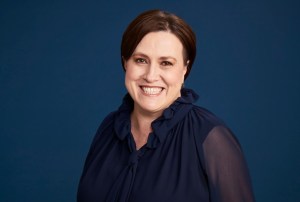
Nine’s Director of News & Current Affairs Fiona Dear has responded to questions around her appointment in May following the exit of Darren Wick.
As part of the Women in Media 2024 Report, Dear notes she has a task ahead to restore respect to the newsroom.
You’re new to the Director of News and Current Affairs role. What are your priorities for fostering gender equity in your newsrooms?
FD: I’ve taken over at a difficult time, not just for Nine, but for commercial media in general. I think my priorities have changed, because of the time I have come in. My first priority with this team is to try and get the trust back. A lot of the trust, particularly with women in the newsroom, has been eroded. So, my first priority is to unite us, to get the trust back. And to get the respect back. That may not have been my priority if I had taken this role 12 months ago, but I think it’s like any job when you walk in, you’ve got to meet the situation head on.
What do you think your first strategy to make this change is going to be? Is it going to be something really formal like recruitment strategy or is it more about changing something in the culture?
FD: The first strategy is listening. I think it’s really important. People want to have a voice and they want to be heard. That is my very first priority, it’s to give them back their voice because a lot of people here feel like they may have lost their voice over time. Twenty years ago, there were men in in all the key seats. They controlled the narrative about what we presented to the audience every night. That has changed. There’s a female EP in the 6.00pm news tonight. There’s a female EP in the afternoon news. I know in my direct leadership team there are some very strong women in those positions. So I feel like I don’t have to strategise to even the equation and hire more women. I don’t think I need to actively recruit. I need to better the process when positions come up so all women, regardless of their circumstances, feel like, ‘I can do that job.’ When Nine spoke to me about taking this job, my instant reaction was, ‘Am I good enough? Can I do it?’ I still think that we all suffer incredibly from self-doubt. We have to get rid of that guilt. Make our teams realise that it’s not like we’re being bad leaders. It’s that we are being actually responsible leaders and showing the team that you can do both. You just do it to be differently.
How did you feel coming into that kind of environment knowing that women in the newsroom were really angry?
FD: I was angry myself. I worked in the newsroom in that period. I was angry. I was angry as a woman who worked in that environment at that time. I was angry that I was given this opportunity and had to clean up someone else’s shit. This sounds selfish, but I was angry. I have worked really, really hard in my career. And I was angry that the time that I get a dream job, there was no time for me to step back and say: ‘Wow, you got that. You achieved that, that’s a pretty significant thing that you just achieved’. There was no time for me to mark that moment. I’m angry at certain people that I feel a bit cheated of that experience. It feels selfish and maybe that’s part of that whole guilt thing that women go through. But then I also felt an incredible responsibility, it is now my time to give back and to make lasting change. So that this newsroom that I adore never has to go through that again. I feel terrified, excited and great responsibility. It’s also an organisational responsibility.
How do you also advocate upwards for change?
FD: I know that my first priority is to change the culture and to change it within this newsroom, but to also change it up. I want this newsroom to be the poster child for the business. This is how you do it. And let the rest of the business follow our lead. Now we’re going to show you the way of how as a business, as an organisation, this is the way you do it. They are very receptive to listening as well. The rest of the business knows we have got to listen. I think there was incredible shock at what they have learned. They want to say “now is the time to change”. And, us as an organisation, we’ve shone the spotlight on ourselves. Now, let’s lead the charge. It’s going to be a slow process, but we have to change it. Simple as that. We’ve got no choice.
links to content on ABC
TV Tonight





